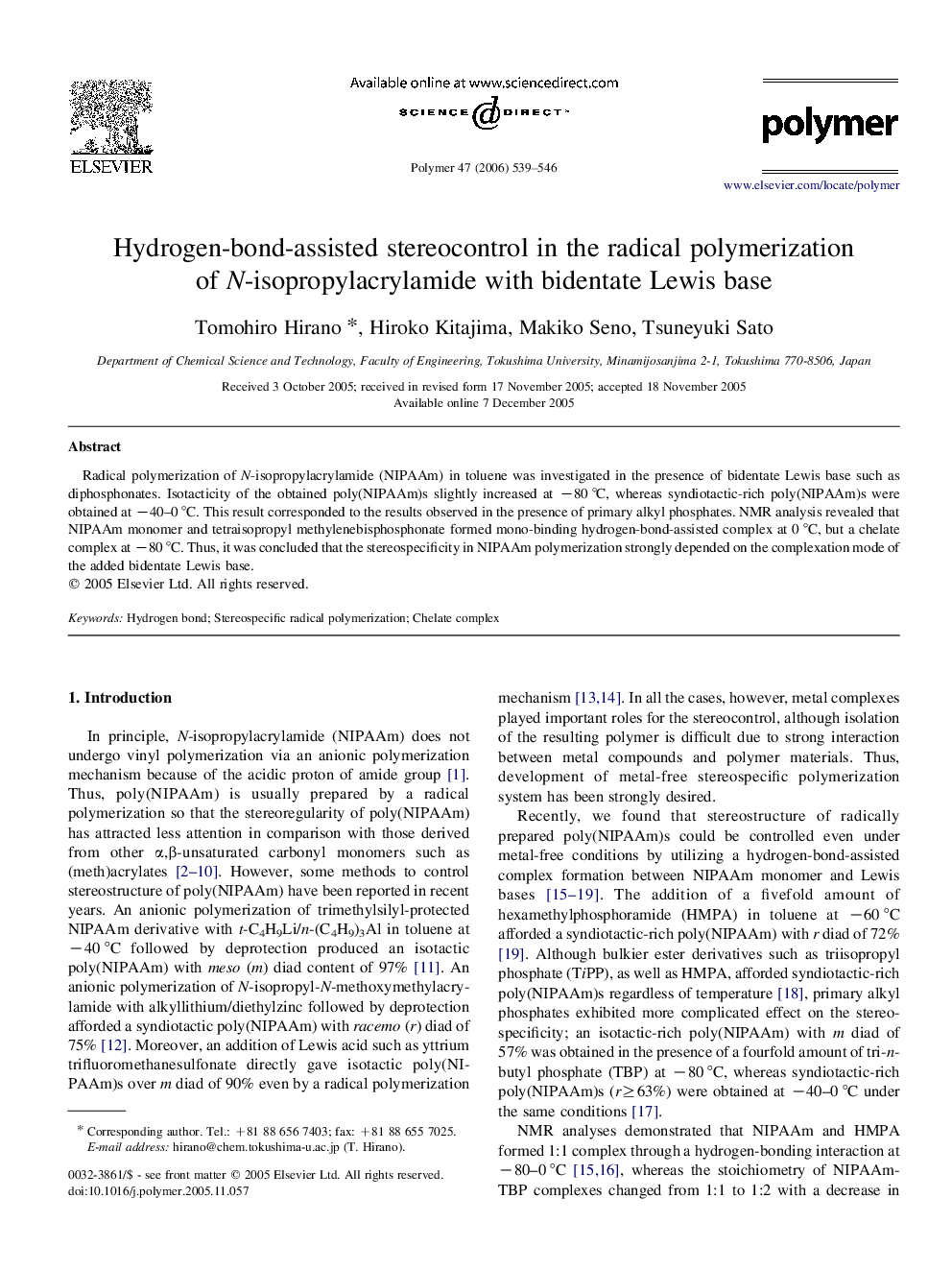| Article ID | Journal | Published Year | Pages | File Type |
|---|---|---|---|---|
| 5189403 | Polymer | 2006 | 8 Pages |
Abstract
Radical polymerization of N-isopropylacrylamide (NIPAAm) in toluene was investigated in the presence of bidentate Lewis base such as diphosphonates. Isotacticity of the obtained poly(NIPAAm)s slightly increased at â80 °C, whereas syndiotactic-rich poly(NIPAAm)s were obtained at â40-0 °C. This result corresponded to the results observed in the presence of primary alkyl phosphates. NMR analysis revealed that NIPAAm monomer and tetraisopropyl methylenebisphosphonate formed mono-binding hydrogen-bond-assisted complex at 0 °C, but a chelate complex at â80 °C. Thus, it was concluded that the stereospecificity in NIPAAm polymerization strongly depended on the complexation mode of the added bidentate Lewis base.
Related Topics
Physical Sciences and Engineering
Chemistry
Organic Chemistry
Authors
Tomohiro Hirano, Hiroko Kitajima, Makiko Seno, Tsuneyuki Sato,
